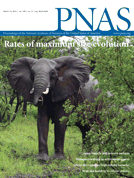导读:流感病毒进入人体后,利用细胞内的蛋白质等大量复制自身进行增殖。增殖的流感病毒从细胞出来,转移到其他细胞里,感染随之扩大。日本研究人员发现,流感病毒在人体内增殖时,人体细胞中一种蛋白质发挥重要作用。这一发现将有助于研发出治疗各种类型流感的新药物。

日本研究人员在新一期美国《国家科学院院刊》网络版上发表论文说,流感病毒在人体内增殖时,人体细胞中一种蛋白质发挥重要作用。这一发现将有助于研发出治疗各种类型流感的新药物。
流感病毒进入人体后,利用细胞内的蛋白质等大量复制自身进行增殖。增殖的流感病毒从细胞出来,转移到其他细胞里,感染随之扩大。
东京大学医学研究所教授河冈义裕率领的研究小组详细研究了从人体细胞中释放出来的流感病毒,发现在病毒释放出来时,人体细胞表面一种称为“F1β”的蛋白质在发挥作用。如果人体细胞无法顺利合成这种蛋白质,释放出来的流感病毒数量就会减少,感染也很难蔓延。
研究小组指出:“流感病毒变异后,会出现耐药性,但是如果以人的蛋白质为靶子开发药物,就不会出现耐药性问题。”

F1Fo-ATPase, F-type proton-translocating ATPase, at the plasma membrane is critical for efficient influenza virus budding
Gorai, Takeo; Goto, Hideo; Noda, Takeshi; Watanabe, Tokiko; Kozuka-Hata, Hiroko; Oyama, Masaaki; Takano, Ryo; Neumann, Gabriele; Watanabe, Shinji; Kawaoka, Yoshihiro
The identification of host factors involved in virus replication is important to understand virus life cycles better. Accordingly, we sought host factors that interact with the influenza viral nonstructural protein 2 by using coimmunoprecipitation followed by mass spectrometry. Among proteins associating with nonstructural protein 2, we focused on the β subunit of the F1Fo-ATPase, which received a high probability score in our mass spectrometry analysis. The siRNA-mediated down-regulation of the β subunit of the F1Fo-ATPase reduced influenza virion formation and virus growth in cell culture. We further found that efficient influenza virion formation requires the ATPase activity of F1Fo-ATPase and that plasma membrane-associated, but not mitochondrial, F1Fo-ATPase is important for influenza virion formation and budding. Hence, our data identify plasma membrane-associated F1Fo-ATPase as a critical host factor for efficient influenza virus replication.
文献链接:https://www.pnas.org/content/early/2012/03/01/1114728109.abstract








